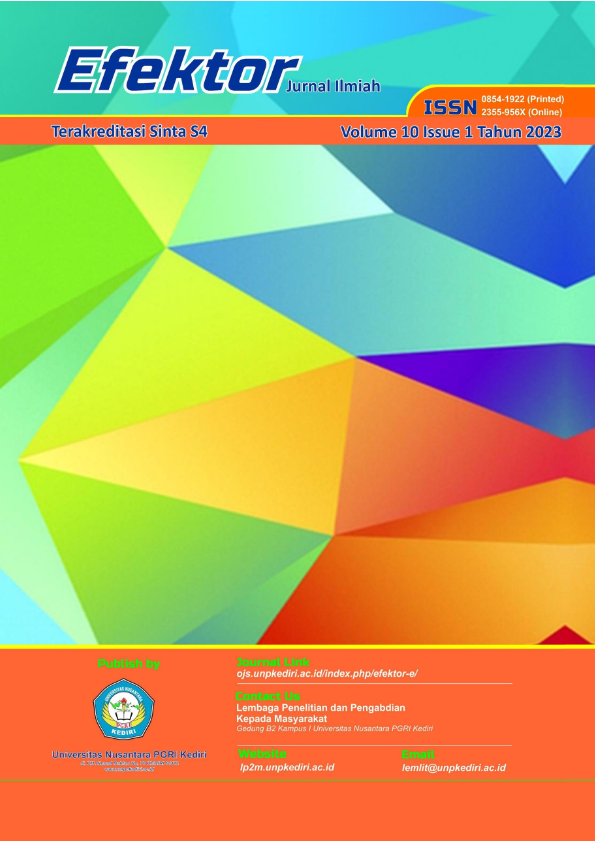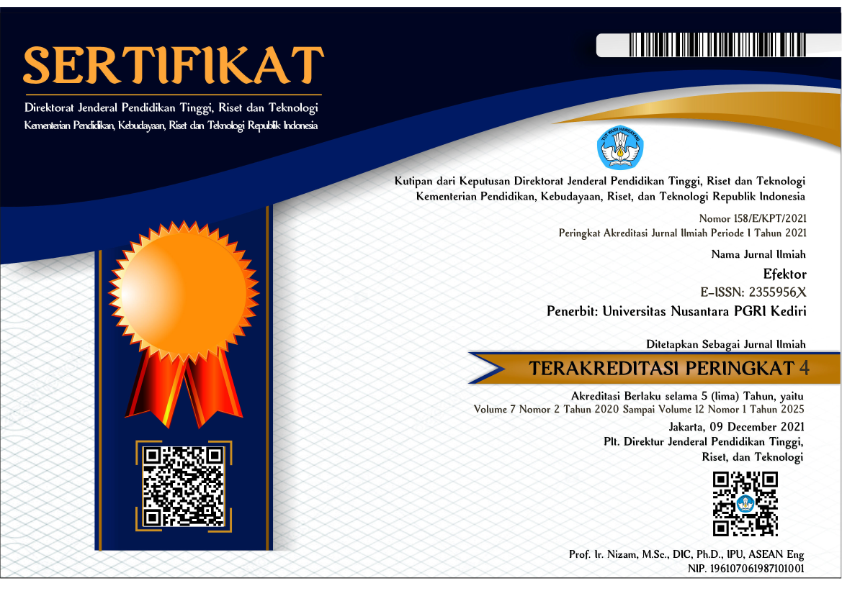Pengaruh Human Development Index (HDI) Terhadap Pertumbuhan Ekonomi Luwu Raya
DOI:
https://doi.org/10.29407/e.v10i1.19359Keywords:
Human Development Index, Economic GrowthAbstract
Economic growth is the process of increasing a country's capacity to produce goods and services, which are part of long-term economic activity. One of indicators that can support increasing economic growth in a region is the human development index. The purpose of this research is to find out the impact of the Human Development Index on Economic Growth in Luwu Raya. The data used is a ten year time series data. The data were obtained from the Luwu Raya Central Statistics Agency which provided data on the Human Development Index and Economic Growth for 2011 - 2020. In this research, simple linear regression analysis method was used to process data through SPSS version 20. The test results showed that the coefficient of the independent variable was 0.257 or 25,7%. It can be said that the dependent variable was influenced by independent variables, and 74,3 percent of the variables were influenced by other variables not related to the research. Human Development Index and Economic Growth was not effect on the relationship between variables. Economic Growth will increase by 50,7 percent for every 1% increase in the Human Development Index. It is expected that the government of Luwu Raya can implement appropriate policies to improve the quality of the Human Development Index, so it can promote economic growth based on the findings of this study.
References
Andiny, P. (2017). Analisis Pertumbuhan Ekonomi dan Kemiskinan Terhadap. 1(2), 196–210.
Anindhita, F. Granger, K. (2022). Analisis Pertumbuhan Ekonomi dan Pembangunan Manusia di Gorontalo Propinsi. 20(01), 1–9.
Dewi, N. L. S., & Sutrisna, I. K. (2014). Pengaruh Komponen Indeks Pembangunan Manusia Terhadap Pertumbuhan Ekonomi Provinsi Bali. E-Jurnal EP Unud, 3, 106–114.
Ghozali, I. (2016) Aplikasi Analisis Multivariete Dengan Program IBM SPSS 23. Edisi 8. Semarang: Badan Penerbit Universitas Diponegoro.
Ikram, D. J. (2021). Pengaruh Indeks Pembangunan Manusia Terhadap Pertumbuhan Ekonomi Di Provinsi Sulawesi Selatan. 6.
Intan Suswita … Pawer Darasa Panjaitan. (2020). Pengaruh Infrastruktur terhadap Pertumbuhan Ekonomi di Kabupaten Simalungun. Jurnal Ekuilnomi, 2(1), 1–11. https://doi.org/10.36985/ekuilnomi.v2i1.346
Irmayanti. (2017). Pengaruh Indeks Pembangunan Manusia Terhadap Pertumbuhan Ekonomi di Kabupaten Polewali Mandar. 1–14.
Muqorrobin, M., & Soejoto, A. (2017). Terhadap Pertumbuhan Ekonomi Provinsi Jawa Timur Pengaruh Indeks Pembangunan Manusia ( Ipm ) Terhadap Pertumbuhan Ekonomi Provinsi Jawa Timur Moh Muqorrobin Ady Soejoto Abstrak. Pendidikan Ekonomi, 6. https://ejournal.unesa.ac.id/index.php/jupe/article/view/20602#:~:text=Berdasarkan hasilestimasi data menggunakan regresi,akan menurunsebesar 0,19%25.
Rahmawati, F., & Hidayah, Z. M. (2020). Menelusur Relasi Indeks Pembangunan Gender Terhadap Pertumbuhan Ekonomi. EcceS (Economics, Social, and Development Studies), 7(1), 110. https://doi.org/10.24252/ecc.v7i1.13919
Susanto, A. B., & Lucky, R. (2002). Pengaruh Indeks Pembangunan Manusia (IPM) dan Inflasi Terhadap Pertumbuhan Ekonomi di Kabupaten Lamongan. Jurnal Ekonomi, 5(1), 1–20. https://core.ac.uk/download/pdf/230751247.pdf
Wididarma, K. (2017). Asli Daerah Terhadap Pertumbuhan Ekonomi Dan Kemiskinan Kabupaten / Kota Di Provinsi Bali Jurusan Ekonomi Pembangunan Fakultas Ekonomi dan Bisnis Universitas Udayana ( Unud ), Bali , Indonesia Pembangunan ekonomi merupakan suatu proses yang mengakibatkan. 2982–3010.
Downloads
Published
Issue
Section
License
Authors who publish with this journal agree to the following terms:
- Copyright on any article is retained by the author(s).
- The author grants the journal, the right of first publication with the work simultaneously licensed under a Creative Commons Attribution License that allows others to share the work with an acknowledgment of the work’s authorship and initial publication in this journal.
- Authors are able to enter into separate, additional contractual arrangements for the non-exclusive distribution of the journal’s published version of the work (e.g., post it to an institutional repository or publish it in a book), with an acknowledgment of its initial publication in this journal.
- Authors are permitted and encouraged to post their work online (e.g., in institutional repositories or on their website) prior to and during the submission process, as it can lead to productive exchanges, as well as earlier and greater citation of published work.
- The article and any associated published material is distributed under the Creative Commons Attribution-ShareAlike 4.0 International License













